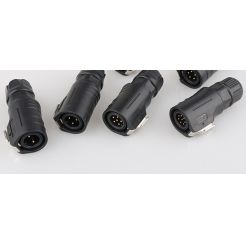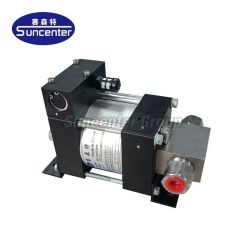3mm GCE(Glassy Carbon Electrode) & Electrolytic Cell All Types for Electrochemical Lab
Product Name: GCE/Electrolytic Cell Orgin:China Brand:ACEM Size: Optional In electrochemical analysis, the glassy carbon electrode serves as the working electrode, along with the reference electrode and electrolyte, to form an electrochemical system.
Product Description
Please click on the product name below to jump to the corresponding product details:
►GCE(Glass Carbon Electrode) ►Sealed Electrolytic Cell ►H-type Three Electrode Sealed Electrolytic Cell
Glassy carbon electrodes (GCE) are divided into straight and L-type.
Application: Glassy carbon electrodes are mainly used in applications such as chemical cells and fuel cells that require corrosion resistance and high stability. Due to its excellent corrosion resistance and electrochemical stability, glassy carbon electrodes can operate stably in harsh environments for a long time. Widely used in electrochemical experiments or electrical analysis.
|
Parameter: (Default is 3mm glass carbon diameter) |
||
|
Glass carbon diameter |
PTFE body size (Dia.&L) |
Copper connector(Dia.&L) |
|
2mm |
6mm&80mm |
2mm&15mm(20mm) |
|
3mm |
6mm&80mm |
2mm&15mm(20mm) |
|
4mm |
8mm&80mm |
2mm&15mm(20mm) |
|
5mm |
8mm&80mm |
2mm&15mm(20mm) |
|
6mm |
10mm&80mm |
2mm&15mm(20mm) |
|
Others |
||
|
Outer electrode |
Total length approximately 80mm |
|
|
Terminal post |
Gold-plated material, approximately 15mm long |
|
|
Electrode jacket |
PEEK material, PTFE material |
|
|
Size can be customized |
||
|
Remarks: Try to avoid ultrasonic cleaning for glassy carbon electrodes, If the data is incorrect, it can be repaired by polishing and polishing. |
||
Usage, Maintenance and Precautions
•The working electrode of a glassy carbon disk is abbreviated as a glassy carbon electrode. The glassy carbon electrode has been polished to a mirror gloss in the factory before leaving the factory. So please pay attention to maintaining its surface during the handheld process.
•During transportation, the electrode is covered with a rubber cap to protect the surface. When electrodes are not used and need to be stored, please put the rubber cap on it.
•Due to the sulfur content in the rubber cap, it will react with the metal surface. Therefore, please re polish the surface of the electrode when using it. Polishing the electrode surface before each experiment is the most effective method to maintain its freshness. Please refer to the instruction manual for electrode polishing materials for specific polishing steps.
•There are two types of electrode tube materials, polytetrafluoroethylene (PTFE) and polyether ether ketone (PEEK), which have similar chemical properties and exhibit a chemical inertness. However, when the temperature exceeds 60 ° C, the PTFE material will soften the electrode tube and change its shape. Higher temperatures will cause leakage and seal failure. So never fire bake or cook the electrodes, as PEEK material can withstand high temperatures up to 100 ° C and is relatively stable compared to PTFE material.
•Fiberglass carbon cannot be welded and requires the use of special materials for welding, which is relatively fragile. Do not use ultrasonic waves to clean the glassy carbon electrode to avoid damage to the connection. If ultrasonic waves are necessary, please try to shorten the time.
•If the voltage is positive, the glassy carbon electrode will be oxidized, and the oxidation voltage mainly depends on the pH value. Oxidation will cause permanent damage to the glassy carbon electrode, so please carefully choose the potential range.
Lab Equipment for Fuel Cell Three Electrode Sealed Electrode Electrolytic Cell
Product features: The cup and lid of the sealed electrolytic cell are threaded, equipped with a large sealing ring. The electric grooves on the lid are equipped with corresponding sized sealing plugs, which can achieve the theoretical sealing conditions of the experiment.
|
Product Information |
||
|
Product Name |
Five hole three electrode sealed electrolytic cell |
Three hole three electrode unsealed electrolytic cell |
|
Product images |
|
|
|
Product material |
Screw mouth PTFE bottle cap |
PTFE bottle cap |
|
Electrode aperture |
Triple electrode hole 6mm |
Triple electrode hole 6mm |
|
Remarks |
Electrodes need to be purchased separately |
|
|
Product specifications |
||
|
25ml ordinary electrolytic cell |
30ml ordinary electrolytic cell |
50ml ordinary electrolytic cell |
|
25ml sealed electrolytic cell |
30ml sealed electrolytic cell |
50ml sealed electrolytic cell |
|
60ml ordinary electrolytic cell |
80ml ordinary electrolytic cell |
100ml ordinary electrolytic cell |
|
60ml sealed electrolytic cell |
80ml sealed electrolytic cell |
100ml sealed electrolytic cell |
|
150ml ordinary electrolytic cell |
200ml ordinary electrolytic cell |
250ml ordinary electrolytic cell |
|
150ml sealed electrolytic cell |
200ml sealed electrolytic cell |
250ml sealed electrolytic cell |
|
300ml ordinary electrolytic cell |
500ml ordinary electrolytic cell |
1000ml ordinary electrolytic cell |
|
300ml sealed electrolytic cell |
500ml sealed electrolytic cell |
1000ml sealed electrolytic cell |
Five hole three electrode sealed electrolytic cell

Three hole three electrode unsealed electrolytic cell

Installation of sealed electrolytic cell
•The sealed electrolytic cell is composed of a sealing rubber ring, a sealing plug, a PTFE cover, and the cell body;
•Insert the electrode and gas tube into the electrolytic cell during installation, and then install the sealing ring;
•Install the sealing nuts of the electrode and air hole onto the electrode, squeeze the sealing ring, and rotate and tighten the nuts;
•Install the large sealing ring on the pool body and securely clip the sealing ring onto the cover to ensure it is securely fastened;
•The installation of the electrolytic cell is completed (the installation of the three electrode system is completed);
Installation of unsealed electrolytic cell
•The unsealed electrolytic cell is composed of a sealing ring, a PTFE cover, and the cell body;
•During installation, cover the electrode with a rubber ring and place it on the cover;
•The installation of the electrolytic cell is completed (the installation of the three electrode system is completed);
Product details

Lab Equipment for H-type Three Electrode Sealed Electrolytic Cell
Product features:
•The cup mouth and lid of the sealed electrolytic cell are both threaded and equipped with sealing rings for sealing;
•The electrode hole of the PTFE cap is a threaded sealing hole, equipped with corresponding sealing components;
•Instrument capable of achieving theoretical sealing conditions for experiments;
•Sealed electrolytic cells can all be filled with nitrogen gas, as long as the pipe on the nitrogen gas pump can be connected, and the distribution pipe defaults to a 3mm plastic pipe;
|
Product Information |
||
|
Product Name |
H-type ordinary electrolytic cell |
H-shaped sealed electrolytic cell |
|
Product images |
 |
 |
|
Product material |
PTFE /glass |
PTFE /glass |
|
Electrode aperture |
Two electrode holes 6mm |
Two electrode holes 6mm |
|
Remarks |
Electrodes need to be purchased separately |
|
|
Product specifications |
||
|
20ml H-type ordinary electrolytic cell |
30ml H-type ordinary electrolytic cell |
50ml H-type ordinary electrolytic cell |
|
100ml H-type ordinary electrolytic cell |
150ml H-type ordinary electrolytic cell |
200ml H-type ordinary electrolytic cell |
|
250ml H-type ordinary electrolytic cell |
250ml H-type ordinary electrolytic cell |
300ml H-type ordinary electrolytic cell |
|
30ml H-type sealed electrolytic cell |
50ml H-type sealed electrolytic cell |
100ml H-type sealed electrolytic cell |
|
150ml H-type sealed electrolytic cell |
200ml H-type sealed electrolytic cell |
250ml H-type sealed electrolytic cell |
|
300ml H-type sealed electrolytic cell 500ml H-type sealed electrolytic cell |
||
H-shaped sealed electrolytic cell

Product Analysis

Email: Katia@acemenergy.com
Mob.: +86 139 6064 6144
WeChat: +86 139 6064 6144
Skype: Katia@acemenergy.com
Whatsapp: +8613960646144
Add.: No.101, Guyan Road, Xiang'an District, Xiamen City, Fujian Province, China













